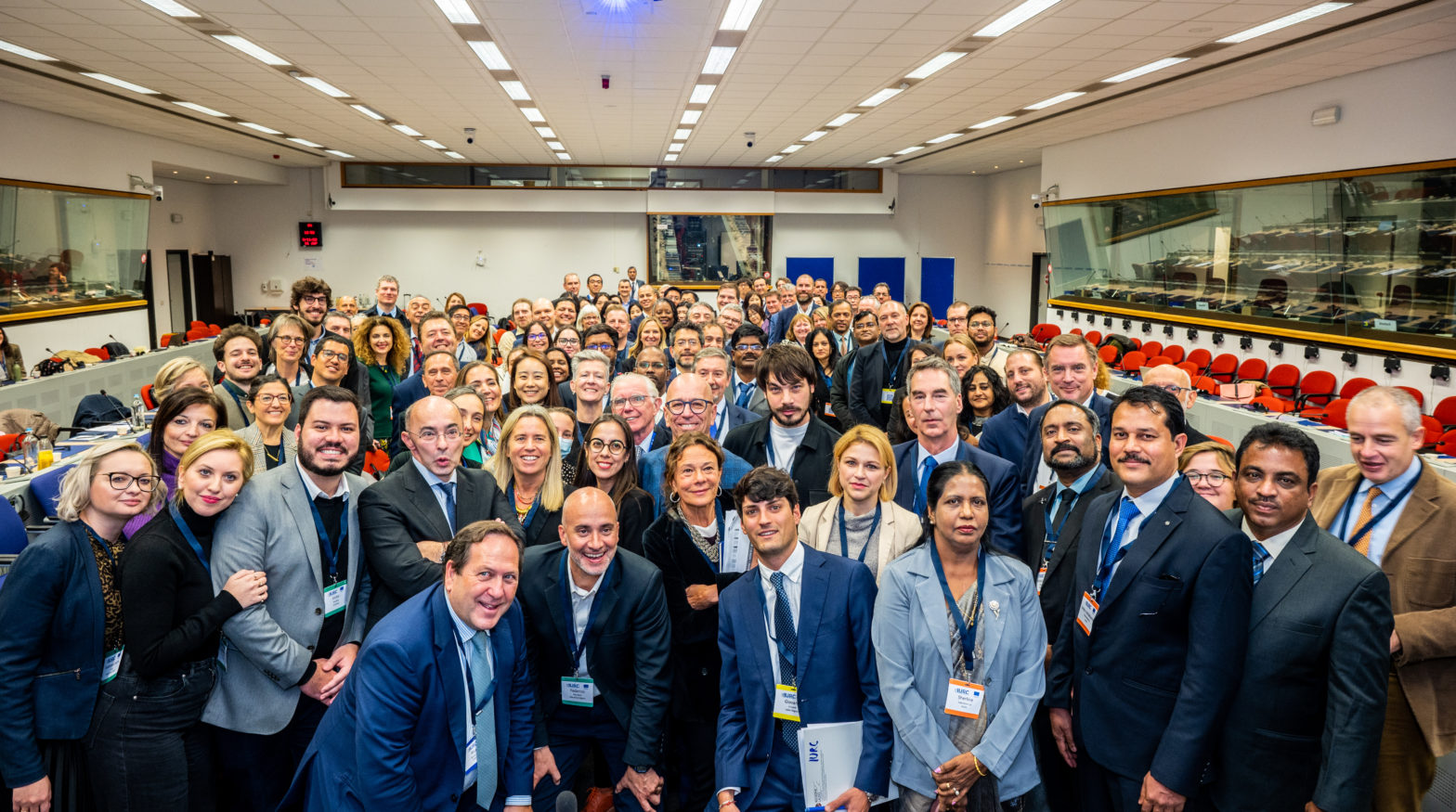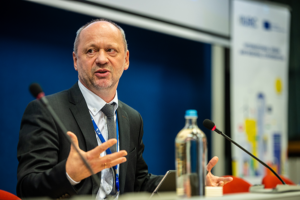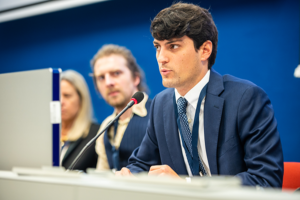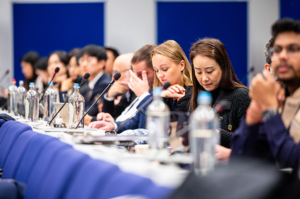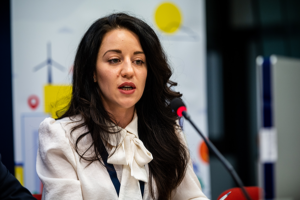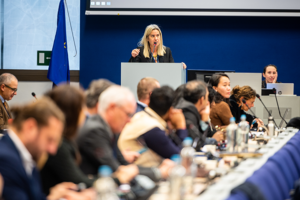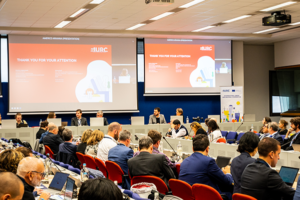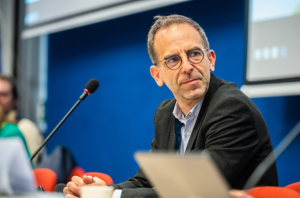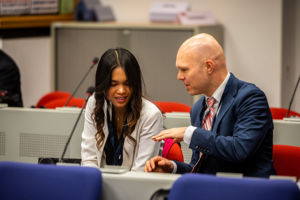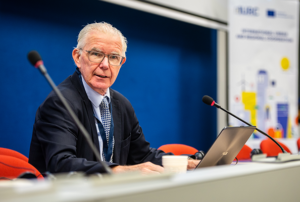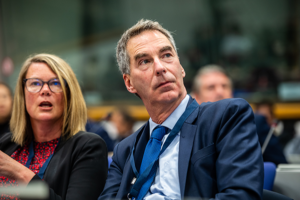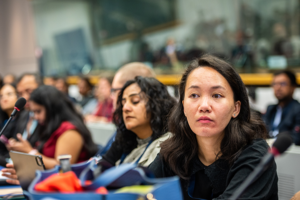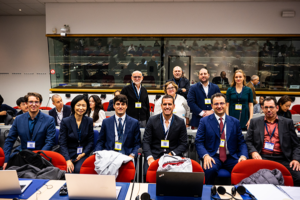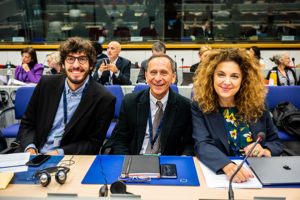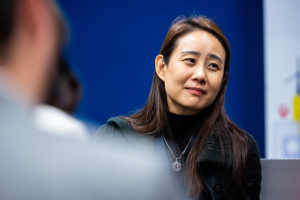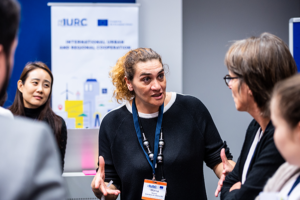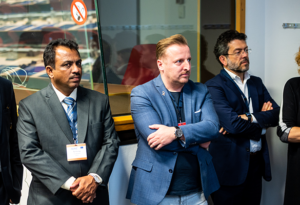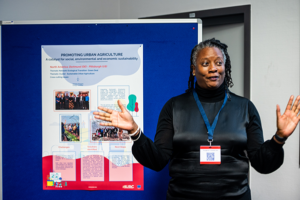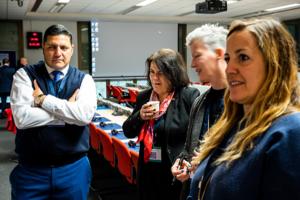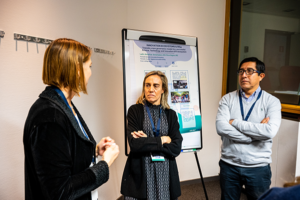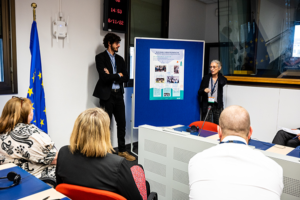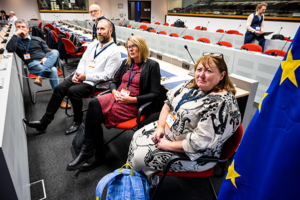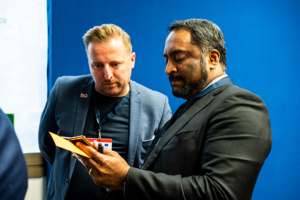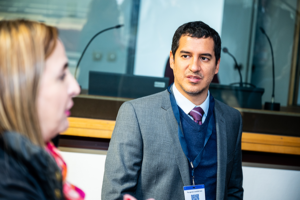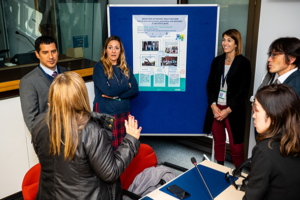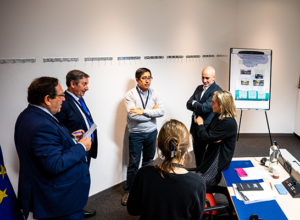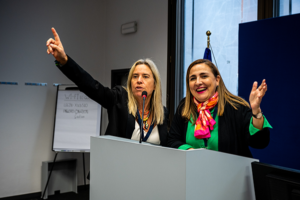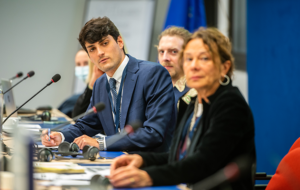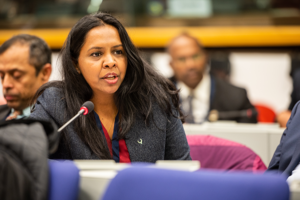“This programme brings together cities, regions and people from around the world, ensuring that no one is left behind,” declared Normunds Popens Deputy Director General of the European Commission’s Directorate General for Regional and Urban Policy (DG REGIO). He was addressing a room filled with representatives from the IURC cities and regions of Europe, Asia, Australasia, North and Latin America at the International Urban and Regional Cooperation Programme’s Annual Event in Brussels this month.
Global success
“I’m so happy to see that IURC has been such a success story,” Popens professed. The International Urban and Regional Cooperation (IURC) programme has opened up cooperation between European cities and regions and their international counterparts to create a brighter and more sustainable future through concrete projects like water sanitation, renewable energy infrastructure and new approaches to local governance.
You are currently viewing a placeholder content from YouTube. To access the actual content, click the button below. Please note that doing so will share data with third-party providers.
Popens pointed to the network of urban initiatives of which IURC is a part, including the EU Urban Agenda, the Leipzig Charter, Urban Innovative Actions, the 100 Cities Mission and Cohesion Policy, emphasising the seriousness with which the European Commission takes the need to approach sustainability form the local level. “Cities are centres of development,” he said.
Finally, Popens stressed the ‘C’ for Cooperation in IURC: “This global network help us a lot to rethink what we need to do together,” he said, speaking to the receptivity of the Commission to the findings and experiences that come from this programme, and to the fact that the EU is as ready to learn from its global partners as it is to share its values and experiences with them.
No simple miracle
“Our goals are global in scope, but the action is local,” concurred Frédéric Saliez, Programme Officer at UN Habitat, highlighting the importance of the IURC and its alignment with the Sustainable Development Goals of the United Nations. “Cities and regions are critical to reaching the Sustainable Development Goals,” Saliez said, “and that’s exactly what you’re doing in this programme.”
You are currently viewing a placeholder content from X. To access the actual content, click the button below. Please note that doing so will share data with third-party providers.
Saliez sounded out a warning to those gathered: “Let’s not fool ourselves: there is no simple miracle recipe to address challenges such as the ones we are facing.” However, he said that including the local level and focusing not only on domestic but also on international progress – in alignment with the mission of the UN – was an evident priority of the EU’s approach, and one that inspired hope for the future.
He too stressed the complementarity of the IURC with other EU initiatives such as the New European Bauhaus, and also spoke to benefits of the IURC for political as well as technical understanding and alignment across the world.
An international priority
Ronald Hall, Senior Advisor to the European Commission’s DG REGIO, emphasised the strength of the connection between EU and UN activity on this front, saying, “Nearly everything we do under the heading of urban development is guided by our Urban Agenda and the UN’s Urban Development Goals.”
Hall harkened back to the genesis of the IURC, more than 20 years ago, when the EU opened discussions on sectoral policy dialogues with countries outside the EU. “A very large number,” he recalled, “wanted to prioritise cooperation on regional and urban development policy, and particularly policies to reduce geographical and social disparities.” It was from the recognition of this worldwide priority that the IURC was born.
“The EU has signed agreements with each of the countries participating in the IURC, and the cooperation that happens through the programme is both a result of and a factor for the strengthening of these agreements,” Hall said.
Core values
The IURC’s global partners were happy to emphasise the strength of this concordance. Li Ping from China’s Department of Regional Economy’s National Development and Reform Commission highlighted how trade and cooperation with the EU are continuing to grow year on year. China applauded the innovation that had grown from IURC study visits, both in China and the EU, and expressed the government’s commitment to continue promoting economic progress and industrial development.
Japan’s Sasaki Shunichi, Deputy Director-General of the City Bureau’s Ministry of Land, Infrastructure, Transport, and Tourism also stressed the benefits of the IURC. He expressed Japan’s priorities around mobility, from railway improvement to the decongestion of city centres, as well as the importance of economic development – all areas that cities with the IURC are collaborating on strengthening.
Shunichi also pointed to the harmony between social values and technological innovation that is at the heart of the human-focused approach that Japan shares with the core values of the International Urban and Regional Development Programme. He shared a vision for cities where people can live a sustainable and fulfilling life, an active life at all ages that enlivens neighbourhoods across the world.
Ana Contreras Escribano from Acciona, thanked the consortium that her organisation leads, including Eurocities, Eurada and Infyde, for their work in operating the European Commission’s IURC Programme, and introduced pairs of European and international cities to hare the fruits of their collaboration – successes that they were enthusiastic to help others benefit from.
Cleaning up waste
Through Essen’s (Germany) collaboration with Fortaleza (Brazil) on waste management, using the framework of the European Green Deal’s focus on ecological transition, the cities found ways to engage the people who create and manage waste. “That’s the challenge Essen and Fortaleza have in common,” Said Kirsten Helle of Essen’s Environmental Office, “we want to support recycling and reduce waste.”
Victor Macedo, from Fortaleza’s CINTINOVA company explained his city’s desire to “learn with Essen in relation to the implementation of our waste management fees.” But charging for waste management was far from the only development that the cities worked on, which ranged from improving the labour conditions of those working in waste management to engaging local people in a shared vision of the need to reuse and recycle.
Rapid prototyping
The cooperation between Kansas City (USA) and Metropolis GZM, a group of Polish cities, focused on reducing emissions from transport. In Polish cities, streets that started with a lot of cars, trucks and associated accidents were transformed into pedestrian friendly streets with bike lanes where three lanes of traffic were replaced with just a single one. All of this was determined in consultation with the residents, who were empowered to drive transformation, and it was managed on a budget of just €15,000. Better yet, the success of this programme has made it a model, and other cities are following suite.
Kansas is becoming expert in this approach of ‘rapid prototyping,’ building small-scale experiments and then rapidly expanding those that succeed. Of the collaboration with Polish cities, the representative from Kansas declared, “We are learning from each other’s successes and difficulties because we don’t have time to repeat each other’s failures,” a phrase that could well be the motto of IURC.
Threads of inspiration
These were only two of the many collaborations that participants had the opportunity to discuss and gain inspiration from. Karlsruhe (Germany) and Pune (India) shared their work on infrastructure for sustainability; Brisbane (Australia) and Barcelona (Spain) shared how their connection as port cities has facilitated their shared approach to urban development; Lazio (Italy) and Silesia (Czechia) elaborated on how they are engaging academia and business for joint research and action, resulting in new initiatives from rapidly transforming sewage into fertilizer, to using chess as a tool for education.
Meanwhile, Milan (Italy) and Sao Paulo (Brazil) spoke on how their shared work is beginning to expand from the technical to the political level, looking at how to better connect elected officials and their administrative counterparts; Malaga (Spain) and Christchurch (New Zealand) are finding joint ways to approach the immediate impacts of climate change, droughts and floods, by engaging academia and communities around water management.
Shared possibilities
Through discussions of these collaborations and many more going on through IURC, participants managed to draw up a list of common challenges and solutions that cities face across the world.
These challenges included working coherently towards long-term goals, rapidly scaling-up proven solutions, maintaining the capacity to engage with emerging technologies and ensure the principle of interoperability, engaging local people and communities to be part of the solution to social and climate challenges, and raising and allocating adequate funding.
You are currently viewing a placeholder content from X. To access the actual content, click the button below. Please note that doing so will share data with third-party providers.
Despite all of these challenges, participants were heartened by the great variety of solutions that they had collaborated to produce. These included rapid prototyping techniques; developing even more expansive and focused fora through which cities can exchange on specific shared issues; creating deeper engagement with stakeholders from the cultural to the activist, voluntary and private sectors; and engaging youth to guarantee a brighter future.
The road ahead
Input from cities demonstrated that the opening words of the European Commission and United Nations, as well as the national representatives around the world were not without good foundation. For global success, local action is key. The coming year, the last year of this phase of the IURC, will see this action proliferate, with cities and regions engaging at an even deeper level to solve the shared challenges that they have identified, and producing tools to help those cities and regions that have not had the opportunity to participate to nonetheless reap the rewards of this wide-ranging international cooperation. So keep an eye on www.iurc.eu, because as the urgency is growing, the innovation will not stop flowing.
